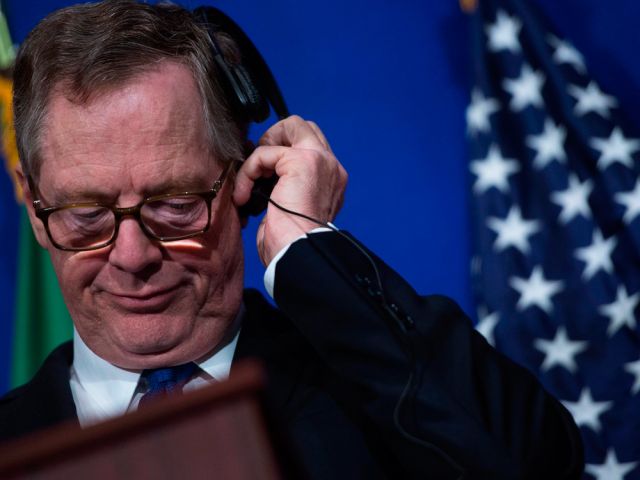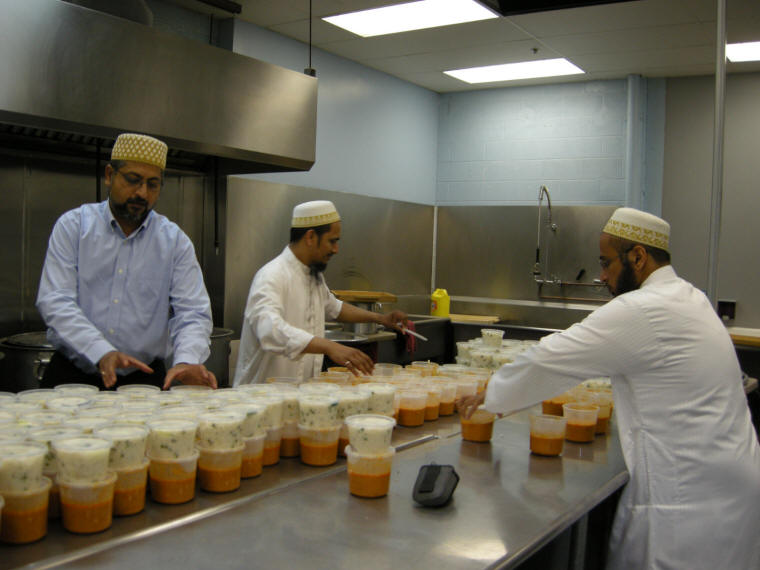
by Editor | May 25, 2021 | Business, Large Enterprise, World

Robert Lighthizer
Ottawa : Canada has “thrown a grenade” at the US filing a complaint with the World Trade Organisation (WTO) against its southern neighbour’s use of trade sanctions, which might wreck their current North American Free Trade Agreement (NAFTA) negotiations, said an international trade law expert.
“The odds are increasing that the United States might withdraw from NAFTA, which I’ve been of the view that it would be unlikely to do,” said Mark Warner, who runs MAAW Law, an international business and regulatory law firm in Toronto and New York City, in an interview, Xinhua reported on Friday.
The WTO revealed on Wednesday that Canada had filed a complaint last month accusing the US of unfairly imposing countervailing and anti-dumping duties, not only on Canadian softwood lumber but also on goods from many other countries.
In a statement, US Trade Representative Robert Lighthizer pushed back against Canada’s case against the US, warning that Canada’s “request for consultations at the WTO is a broad and ill-advised attack on the US trade remedies system”.
It also might result in a flood of imports from other countries — if the complaint successfully have American tariffs removed — and cost Canada billions of dollars in exports to the US, Lighthizer said.
Warner believes that the Canadian government may be playing to a domestic audience in demonstrating that it is not only being “very assertive” in addressing trade disputes, but that it is also trying to “embarrass the Americans” before the world by citing almost 180 trade breaches over two decades against other countries listed on 24 pages of Canada’s 32-page complaint before the WTO.
However, Canada’s strategy is “particularly unwise”, Warner told Xinhua.
He said that during the current NAFTA negotiations, which enter the sixth round in Canada later this month, the US has made it clear that it wants to remove a dispute-resolution mechanism for anti-dumping and countervailing cases under Chapter 19 of the 24-year-old trilateral trade agreement.
“If Canada loses Chapter 19, it would have to go to the WTO,” said Warner.
However, he explained that US President Donald Trump’s administration “dislikes” the WTO’s dispute-settlement body and believes that countries rely on it “inappropriately to achieve results they can’t achieve through negotiations”.
Yet while “the rest of the world is trying to keep the US engaged in that dispute-settlement system”, Canada’s generic complaint against the United States is “counterproductive”, said Warner.
—IANS

by Editor | May 25, 2021 | Business Summit, Events, Muslim World
 Chengdu, China : Oman, represented by the Ministry of Tourism, is currently participating in the twenty-second session of the General Assembly of the World Tourism Organisation (WTO), the meeting of the Middle East Committee and the Committee on Tourism and Sustainability, held in Chengdu.
Chengdu, China : Oman, represented by the Ministry of Tourism, is currently participating in the twenty-second session of the General Assembly of the World Tourism Organisation (WTO), the meeting of the Middle East Committee and the Committee on Tourism and Sustainability, held in Chengdu.
Ahmed bin Nasser al-Mahrzi, Minister of Tourism, leads the Sultanate’s delegation.
The Ministry of Tourism has been keen to participate in the meetings of the General Assembly, to meet with its counterparts from the outside world, in order to strengthen bilateral relations in the field of tourism and its belief in the importance of this vital sector, for achieving sustainable development, its ability to achieve a diversified economy, preserve cultural heritage, while preserving biodiversity and supporting efforts, through which international bodies seek to develop in the tourism sector.
The agenda of the session for the year includes a number of different provisions for serving the tourism sector, in all Member States of the Organisation, including the approval of the guidelines for the adoption of the draft World Tourism Organisation Convention, to monitor the application of tourism ethics, the presentation of the relevant committee’s report thereon, the appointment of an ad hoc committee, to finalise the draft, and the selection of the world committee on tourism etiquette.
—NNN-ONA

by Editor | May 25, 2021 | Opinions
 By Kula Saikia,
By Kula Saikia,
The tsunami of change was all-pervasive to engulf most of the nation states. Liberalisation, free trade, WTO, TPP, NAFTA, EFTA, EU, the information revolution et al came together and broke the historically defined geographical barriers. Isolationism became a hated and much maligned term in international trade, commerce and strategic considerations. There arose new hope of transnational job opportunities cutting across organisations and authorities.
The belief in the new world order was overwhelming with dreams of a better tomorrow where manmade restrictions would crumble, allowing unhindered migration of people, free flow of goods and technology and knowledge transfer, leading to the growth of the manufacturing and service sectors, employment creation and enhancement of living standards. The undercurrent was that the benefits would percolate down the line. Aspirations and ambitions were local but the vision was global in a wirelessly wired world.
Information and communication technology (ICT) clubbed countries together through the internet highway and, like a great medieval conqueror, created a one-world syndrome. However, the factors that were thought to be ushering in a new age of progress and prosperity turned out to be serious disruptors.
The developed countries witnessed the migration of jobs to the army of cheap labour in less developed countries, coupled with the huge inward migration of displaced people from war-ravaged countries, leading to unforeseen pressure on domestic tax payers.
Soaring unemployment levels, coupled with a fall in the real wage, broke the golden dream of sunny days in a free economy environment. Cities like Detroit, once bustling with industrial activities and manufacturing giants witnessed a slow death with the shifting of their nerve centres to a number of developing countries providing cheap and capable manpower.
Disenchantment grew in the rich countries against apparent loss of their sovereignty in the name of a borderless world which siphoned away their economic opportunities.
Things were no better in the developing countries either. No doubt shedding protectionism helped some of them garner production-line units and service sector benefits leading to absorption of both the skilled and semi-skilled human resource of the local pool.
Capital inflows improved but at a price. The volatile nature of such inflows impacted the economic decision-making process in these countries by integrating them to the frequent ups and downs of the rich economies.
Now, it seemed the developing countries had lost their economic sovereignty in the big empire of the virtual world. The unhindered flow of cultural values, ethics and lifestyles along the borderless internet highway generated a perceived fear and apprehension of being uprooted from their traditional social and cultural milieu — the fear of the big fish eating the smaller ones.
The apprehension was not only that Wal Marts would devour the kirana shops or McDonalds would alter eating habits through the likes of the McAloo tikki but that indigenous knowledge, traditions, religious beliefs and cultural milieu would all get swept away in the deluge. The fashion you favour, the apparel you approve, the music you compose, the food you relish, the opinions you form — as if all these have origins elsewhere in a society alien to your own and you feel an unknown and invisible ‘colonial power’ has stealthily demolished your sovereign boundary in the name of a connected world; as if the culture of the land is being swept away by a mighty cultural aggressor.
Part of such fear and apprehension may be perceived, part may be genuine but could lead to the redefining of nationalist ideas and interests in different parts of the globe.
The issues highlighted through Brexit in the UK, the stricter US immigration policy and the recent electoral agendas of several political groups in the EU and elsewhere are the inevitable fall out of this worldwide phenomenon.
Similar waves have hit the socio-political environment of a number of developing countries to rediscover and redefine their national identities so that the virtual borderless world does not demolish their geographically-defined sovereign borders and sweep away their unique cultural ethnicity.
All this has necessitated a fresh look at policy frameworks by suitably redesigning multilateral institutions so that local needs, ethos and pathos of the member countries are adequately reflected to ensure a win-win strategy. There should be sufficient prescriptions to ensure redistributive justice for the citizens so that inequalities perpetrated by the open economy architecture are taken care of.
Globalization has been there since birth of civilisation in different avatars. It has to retune itself to the needs of the time. After all, no nation would like to go back to the cocoon of isolation and monolithic existence.
(Kula Saikia, a Fulbright scholar and a Sahitya Akademy awardee, is Special Director General of Police, Assam. The views expressed are personal. He can be reached at kulasaikia@yahoo.com)
—IANS

by Editor | May 25, 2021 | Halal Food, Halal Industries

Bohra Community Kitchen -Food Distribution (File Photo,Maeeshat)
New Delhi:(IANS) India is working with the WTO members for a permanent solution to the problem of public stockholding for food security purposes, or the “subsidy cap issue”, parliament was informed on Wednesday.
The World Trade Organisation General Council’s November 2014 decision in the matter “also includes a commitment to find a permanent solution by December 31, 2015, on a best endeavour basis and a firm commitment to engage in negotiations for this purpose through an intensified programme of work”, Commerce Minister Nirmala Sitharaman told the Rajya Sabha in a written reply.
“The General Council adopted a decision in November 2014, making it clear that WTO members will not challenge the public stockholding programmes of developing country members for food security purposes, and the peace clause will remain in place in perpetuity until a permanent solution has been agreed and adopted,” she added.
The WTO agreement on public stock holding, paved the way for signing the trade facilitation agreement (TFA) for easing global custom rules.
The TFA, approved by 160 WTO members last year, aims to streamline and harmonise customs procedures to bring an estimated saving of over $1 trillion annually.
An agreement between India and the US earlier opened the way for a consensus on the TFA which had eluded the WTO members.
India has asked for a permanent solution to the issue of public stockholding for food security purposes and not restricted for a period of four years as decided earlier during the WTO ministerial meeting in Bali, Indonesia, last year.
India has been under pressure from several countries, particularly the US, to drop its objections to the TFA.
India’s objections are on the WTO limits on agriculture subsidies at 10 percent of the total value of foodgrains production, and on stockpiling them. Complying with the Food Security Act passed in 2013 that guarantees subsidised foodgrains to around 70 percent of the population could result in breaching these limits leading to penalties for India.
Members also agreed on what is called the “peace clause”, that till 2017 no country can move to the dispute settlement body of the WTO against another member if its government was found to be breaching the level of subsidy freeze that was permitted.




